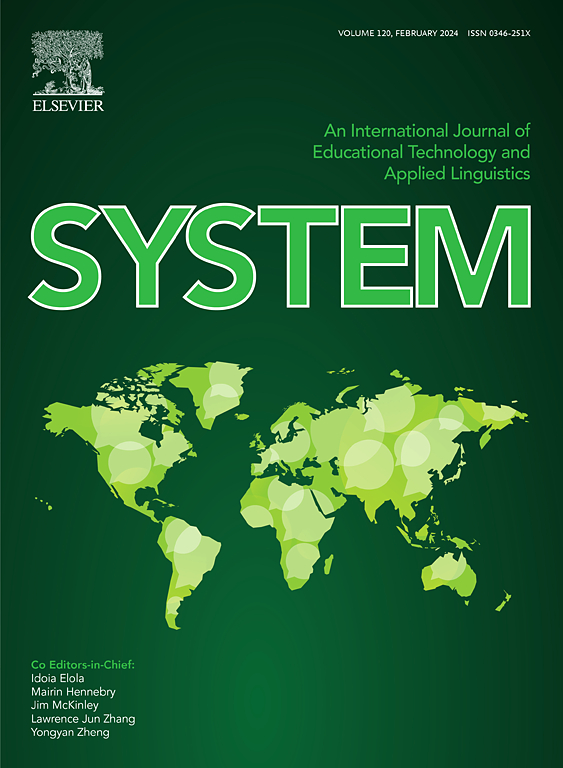Yeast cell wall polysaccharides accelerate yet in-feed antibiotic delays intestinal development and maturation via modulating gut microbiome in chickens
IF 7
1区 农林科学
Q1 Agricultural and Biological Sciences
引用次数: 0
Abstract
It is important to promote intestinal development and maturation of chicks for feed digestion and utilization, intestinal health, and disease resistance. This study aimed to investigate the effects of dietary yeast cell wall polysaccharides (YCWP) addition on intestinal development and maturation of chickens and its potential action mechanism. 180 one-day-old male Arbor Acres broilers were randomly assigned to three groups containing control (basal diets without any antibiotics or anticoccidial drug), bacitracin methylene disalicylate (BMD)-treated group (50 mg/kg) and YCWP-supplemented group (100 mg/kg). Compared with control group, in-feed antibiotic BMD continuous administration significantly decreased crypt depth (d 21) and villus height (d 42) along with mucosal maltase activity (d 42) in the ileum (P < 0.05). Also, BMD markedly downregulated gene expression levels of β-catenin, lysozyme, occludin and FABP-2 (d 21) and innate immune related genes CD83 and MHC-I mRNA levels (d 42, P < 0.05), and decreased goblet cell counts in the ileum of chickens (d 21 and d 42, P < 0.05). While, TLR-2, TLR-6 and iNOS mRNA abundances were notably upregulated by BMD treatment (d 42, P < 0.05). Nevertheless, dietary YCWP addition significantly increased the ratio of villus height to crypt depth (d 21), villus surface area (d 21 and d 42), ileal alkaline phosphatase and maltase activities as well as goblet cell (d 21 and d 42) and IgA-producing plasma cell numbers as compared to BMD treatment (d 21, P < 0.05). YCWP addition also upregulated gene expression levels of Lgr5, Wnt/β-catenin signaling pathway related gene (Wnt3, β-catenin, d 21; β-catenin, d 42), intestinal cells proliferation marker Ki-67 and barrier function related genes (occludin, d 21 and d 42, P < 0.05). Moreover, YCWP significantly increased antigen presenting cell marker related genes (MHC-II, d 21; CD83 and MHC-I, d 42), TLR-1, TLR-2 and TLR-6 mRNA levels (d 21, P < 0.05). Cecal microbiome analysis showed that YCWP addition obviously improved cecal microbial composition, as indicated by increasing relative abundance of Fournierella, Psychrobacter and Ruminiclostridium on d 21, and Alistipes and Lactobacillus on d 42, which were positively related with gut development and maturation related indexes (P < 0.05). Collectively, YCWP promoted yet antibiotic BMD delayed intestinal morphological and immunological development linked with modulating gut microbiome in chickens.酵母细胞壁多糖通过调节鸡肠道微生物群,加速了鸡肠道的发育和成熟
促进雏鸡肠道发育成熟对饲料消化利用、肠道健康和抗病具有重要意义。本试验旨在探讨饲粮中添加酵母细胞壁多糖(YCWP)对鸡肠道发育成熟的影响及其可能的作用机制。试验选用180只1日龄爱拔益加肉鸡,随机分为对照组(基础饲粮不添加抗生素和抗球虫药物)、亚二水杨酸杆菌肽(BMD)处理组(50 mg/kg)和ycbp添加组(100 mg/kg)。与对照组相比,饲粮中持续添加抗生素BMD显著降低了回肠隐窝深度(第21天)、绒毛高度(第42天)和黏膜麦芽糖酶活性(第42天)(P < 0.05)。BMD显著下调了鸡回肠β-catenin、溶菌酶、occludin、FABP-2基因表达水平(d 21, P < 0.05)和先天免疫相关基因CD83、MHC-I mRNA表达水平(d 42, P < 0.05),降低了回肠杯状细胞计数(d 21和d 42, P < 0.05)。而BMD处理显著上调了TLR-2、TLR-6和iNOS mRNA丰度(d 42, P < 0.05)。然而,与BMD处理相比,饲粮中添加YCWP显著提高了绒毛高度与隐窝深度之比(第21天)、绒毛表面积(第21天和第42天)、回肠碱性磷酸酶和麦芽糖酶活性以及杯状细胞(第21天和第42天)和产生iga的浆细胞数量(第21天,P < 0.05)。添加YCWP还上调了Lgr5、Wnt/β-catenin信号通路相关基因(Wnt3、β-catenin, d 21;β-catenin, d 42)、肠细胞增殖标志物Ki-67和屏障功能相关基因(occludin, d 21和d 42, P < 0.05)。此外,YCWP显著增加抗原提呈细胞标志物相关基因(MHC-II, d 21;CD83、mhc -1 (d 42)、TLR-1、TLR-2、TLR-6 mRNA表达水平(d 21, P < 0.05)。盲肠微生物组分析显示,添加YCWP显著改善了盲肠微生物组成,在第21天显著提高了福涅尔氏菌(Fournierella)、冷杆菌(Psychrobacter)和反刍杆菌(Ruminiclostridium)的相对丰度,在第42天显著提高了Alistipes和乳酸菌(Lactobacillus)的相对丰度,与肠道发育成熟相关指标呈正相关(P < 0.05)。总的来说,YCWP促进了鸡的肠道形态和免疫发育,但抗生素BMD延迟了与肠道微生物组调节相关的肠道形态和免疫发育。
本文章由计算机程序翻译,如有差异,请以英文原文为准。
求助全文
约1分钟内获得全文
求助全文
来源期刊

Journal of Animal Science and Biotechnology
AGRICULTURE, DAIRY & ANIMAL SCIENCE-
CiteScore
9.90
自引率
2.90%
发文量
822
审稿时长
17 weeks
期刊介绍:
Journal of Animal Science and Biotechnology is an open access, peer-reviewed journal that encompasses all aspects of animal science and biotechnology. That includes domestic animal production, animal genetics and breeding, animal reproduction and physiology, animal nutrition and biochemistry, feed processing technology and bioevaluation, animal biotechnology, and meat science.
 求助内容:
求助内容: 应助结果提醒方式:
应助结果提醒方式:


